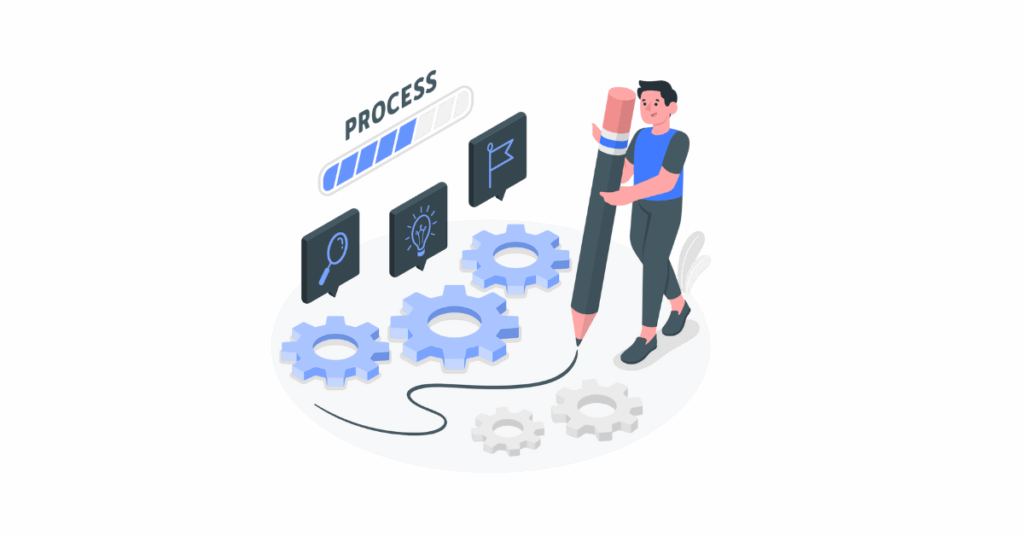‘What makes a process a good candidate for Robotic Process Automation?’

What characteristics make a process a right candidate for automation? This article attempts to address this question.
What is RPA & why is it a revolutionary development?
Remember when ‘Cloud’ was the buzz word that had swept the industry by storm? Now AI & RPA are popular topics of discussion, and it’s safe to say that they are some of the most exciting developments in recent times. RPA will revolutionise and change the way we work, think and make decisions in business, but like with every industrial revolution; there are pros & cons.
So first, what is Robotic Process Automation? In the business and automation world, RPA uses the concept of metaphorical software robots or artificial intelligence workers to automate businesses processes. RPA is not necessarily a robot in the hardware sense of the word, but more a computerised software project.
Can all business processes be automated?
The simple answer is no, as processes require specific characteristics to qualify as a candidate for automation. Automation can be applied to a method if the right any characteristics are in place. Types of business processes where RPA can be used will include a high number of repetitive tasks, low exception rates, and can easily be defined with a set number of rules.
Repetitive Tasks
Repetitive tasks in a process can include approving standard requests, sending emails about news updates and enrolling a new employee.
These tasks require a high level of human intervention to be executed. The above functions are typically repetitive, and of high volume, which can lead to human error.
Business processes that have features such as sending mass emails are the right fit for automation. Newsletters, announcements and sales campaigns can be automated, leaving the business to place resources to another business-critical task
Exception Rates
Exceptions appear in a process when something unexcepted happens during the process execution. Exceptions can vary from business exceptions, known exceptions and application/system exceptions.
If your end to end business processes requires minimal human interaction and is free from known and application/system exceptions, then an RPA solution will be the perfect fit.
Rule-Based
A rule-based system is a system that applies human-made rules to store, sort and manipulate data. In doing so, it mimics human intelligence. To work, rule-based systems require a set of facts or source of data, and a set of rules for manipulating that data. Business processes that are based on a set of rules and actions can also be automated. As with human intervention, the RPA processes the data against the rules, which allows the process to be automated.
RPA will be challenging to apply to a process when there are no clear rules and instructions. Rules need to be well-defined for a method to automate tasks smoothly with minimal errors and human intervention. Business processes require a high number of humans to resolve exceptions cannot be automated, which includes approval workflows.
Are back/front-office processes the perfect case for RPA?
HR & Finance processes handle large amounts of data and usually have data entry tasks. These tasks are prone to human error and require minimal human intervention to make business decisions. An RPA solution can have these tasks automated with minimal room for error. Similarly, there are aspects of front-office processes where automation can be applied, such as those in the sales and marketing departments. These processes include tasks such as sorting bulk customer emails, sending mass newsletters and responding to customer enquiries with texts. RPA can automate these tedious tasks and allow the business to focus on other areas of the company to better engage with their customers.
Henkei’s RPA offerings
Henkei has the process skills and expertise to help your organisation deliver an RPA solution, from the initial assessment of your concerns to the deployment of the solution. Henkei has the in-depth process knowledge to analyse your business processes to see whether you’re a good fit for RPA.
Henkei works with clients considering RPA to analyse their current processes to assess which processes are good candidates. Henkei will scan & create a backlog of the current processes for automation for the Initial scoring to decide whether RPA is right for you.
During the initial scoring of the existing processes, Henkei will Identify process candidates for processes that can be automated, as well as rating the process candidates. Henkei uses various tools and techniques to identify and evaluate the process candidates. Henkei will work with the client to prioritise and rank the RPA candidates by analysing the shortlisted process against business priories.
The Agile delivery methodology is operated when working with candidates from the initial scan to pre-discovery, discovery, build and go-live. During the initial discovery phase,
Want to see how a RPA transform your business? Book a free consultation with Henkei today, and take the first step toward a more efficient workflow.